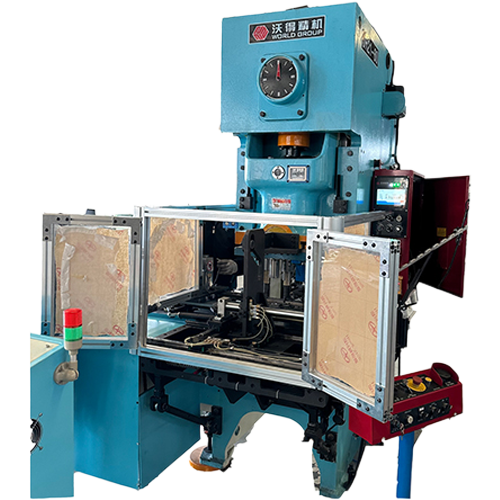Focus on Sustainable Development: Green Initiatives in the 18L Square Tank Production Line
On the 18-liter square tank production line, green initiatives focus on promoting sustainable development practices and reducing the environmental impact of the production process. Here are some key areas where sustainability is often emphasized:
Energy efficiency: Manufacturers are committed to optimizing energy consumption by adopting energy-saving technologies and equipment. This includes the use of high-efficiency motors, improved insulation, and optimized heating and cooling systems. In addition, renewable energy sources such as solar or wind power can be used to reduce dependence on fossil fuels.
Waste reduction: Waste reduction is an important part of sustainable development. Manufacturing plants can take steps to minimize waste generation, such as optimizing production processes, reusing or recycling materials, and implementing waste management strategies. For example, excess metal can be recycled, and packaging materials can be reused or made from recyclable materials.
Water conservation: Water is a valuable resource, so efforts are made to reduce water consumption during the production of 18-liter square tanks. Water-saving technologies, such as closed-circuit circulation systems and automated controls, can be used to reduce water consumption in the production process. In addition, a wastewater treatment system can be implemented to treat and reuse the water in the plant.
Reduction measures: The Green Initiative aims to minimize emissions and air pollutants from production processes. This can be achieved by adopting cleaner technologies, such as low-emission machinery and equipment. Regular maintenance and optimization of equipment can also help reduce emissions. Manufacturers can also explore carbon offset schemes or invest in renewable energy projects to mitigate their carbon footprint.
Sustainable materials: When producing 18-liter square cans, the materials used are considered. Where possible, manufacturers choose environmentally friendly materials, such as metals that can be recycled or reused. In addition, they may explore alternative materials with less environmental impact, such as bio-based or biodegradable materials.

Recommended Products


 EN
EN
 中文简体
中文简体 English
English













